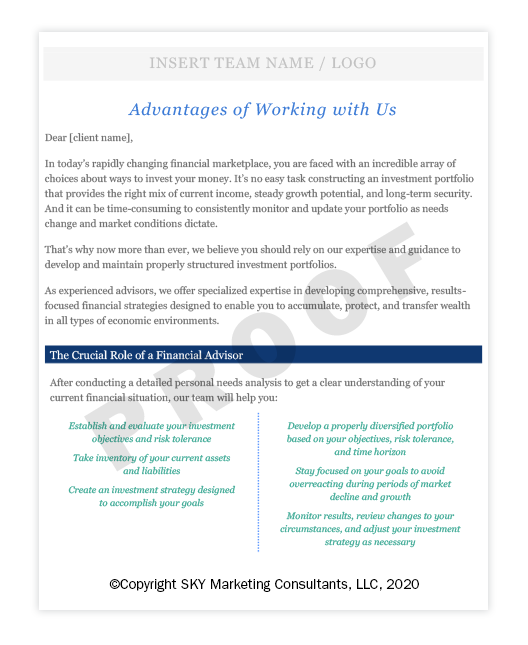
Most millennials lack the knowledge and skills to manage money properly. Many find it difficult to manage student loans. Therefore, it is imperative that millennials create a financial plan. This plan should assess immediate personal goals and prepare for long-term financial needs. This plan should address all financial interests, including debt repayment and saving for retirement.
Alvin Carlos
Alvin Carlos, an independent financial planner, assists millennials in achieving the financial security they seek. He has been a certified financial planning professional since 2011. He has helped many clients in the United States to minimize taxes and maximize their wealth. Here are some key benefits to having a professional financial planner working with you.

Young professionals are often in their first stages of a career and don’t have many assets. They are often juggling several priorities, including paying off student loans, saving for a home, and growing a career. It can be difficult to find the time to plan for all these goals. A good financial planner will help you balance your responsibilities and reach your goals.
Sophia
Sophia is a millennial financial planner and a woman who's matched her money to her values. She's worked with creatives, small business owners, and Silicon Valley employees to create plans for early retirement and building a career they love. Sophia, who was 21 years old, started her own financial consulting firm. Sophia had previously worked as a personal finance consultant with friends to help them navigate new jobs, evaluate company benefits, and purchase a home. She wanted others to achieve their goals through her education.
Sophia's goal in life is to empower young people by helping them make good financial decisions. She is a financial planner who teaches young people and works with banks to understand their needs. Sophia's work has been featured by Forbes, Business Insider and The Huffington Post.
Neal
Millennials often find it difficult to get a financial advisor who can help them navigate the complexities of the financial world. Financial freedom is possible with the guidance of a financial advisor. Neal McLaughlin a Chartered Financial Planner is one example. He is a member millennial generation. This individual is dedicated helping families and young professionals navigate today's financial world.

Financial planners are able to help millennials reach their financial goals. They can create a financial planning plan that aligns with their values, goals, and interests. They will help clients meet their current and future financial needs while still being able meet their monthly obligations. One policy like this would direct five percent each month of a client’s surplus to a Roth IRA. This amount can be up to the maximum allowed per year. You can use the surplus to travel, or for other goals.
FAQ
How to beat inflation with savings
Inflation refers the rise in prices due to increased demand and decreased supply. Since the Industrial Revolution people have had to start saving money, it has been a problem. The government controls inflation by raising interest rates and printing new currency (inflation). But, inflation can be stopped without you having to save any money.
Foreign markets, where inflation is less severe, are another option. You can also invest in precious metals. Silver and gold are both examples of "real" investments, as their prices go up despite the dollar dropping. Precious metals are also good for investors who are concerned about inflation.
What are the potential benefits of wealth management
The main benefit of wealth management is that you have access to financial services at any time. Saving for your future doesn't require you to wait until retirement. It's also an option if you need to save money for a rainy or uncertain day.
To get the best out of your savings, you can invest it in different ways.
You could, for example, invest your money to earn interest in bonds or stocks. To increase your income, property could be purchased.
If you use a wealth manger, someone else will look after your money. You don't have to worry about protecting your investments.
Do I need a retirement plan?
No. This is not a cost-free service. We offer free consultations that will show you what's possible. After that, you can decide to go ahead with our services.
How old do I have to start wealth-management?
Wealth Management is best when you're young enough to reap the benefits of your labor, but not too old to lose touch with reality.
The sooner you invest, the more money that you will make throughout your life.
If you are thinking of having children, it may be a good idea to start early.
Waiting until later in life can lead to you living off savings for the remainder of your life.
What are the most effective strategies to increase wealth?
It's important to create an environment where everyone can succeed. You don't want the burden of finding the money yourself. You'll be spending your time looking for ways of making money and not creating wealth if you're not careful.
It is also important to avoid going into debt. Although it can be tempting to borrow cash, it is important to pay off what you owe promptly.
You are setting yourself up for failure if your income isn't enough to pay for your living expenses. Failure will mean that you won't have enough money to save for retirement.
It is important to have enough money for your daily living expenses before you start saving.
Statistics
- These rates generally reside somewhere around 1% of AUM annually, though rates usually drop as you invest more with the firm. (yahoo.com)
- A recent survey of financial advisors finds the median advisory fee (up to $1 million AUM) is just around 1%.1 (investopedia.com)
- Newer, fully-automated Roboadvisor platforms intended as wealth management tools for ordinary individuals often charge far less than 1% per year of AUM and come with low minimum account balances to get started. (investopedia.com)
- As previously mentioned, according to a 2017 study, stocks were found to be a highly successful investment, with the rate of return averaging around seven percent. (fortunebuilders.com)
External Links
How To
How to Invest Your Savings To Make More Money
You can earn returns on your capital by investing your savings into various types of investments like stock market, mutual fund, bonds, bonds, real property, commodities, gold and other assets. This is called investing. It is important to realize that investing does no guarantee a profit. But it does increase the chance of making profits. There are many options for how to invest your savings. These include stocks, mutual fund, gold, commodities, realestate, bonds, stocks, and ETFs (Exchange Traded Funds). These methods will be discussed below.
Stock Market
Stock market investing is one of the most popular options for saving money. It allows you to purchase shares in companies that sell products and services similar to those you might otherwise buy. Buying stocks also offers diversification which helps protect against financial loss. You can, for instance, sell shares in an oil company to buy shares in one that makes other products.
Mutual Fund
A mutual fund can be described as a pool of money that is invested in securities by many individuals or institutions. These mutual funds are professionally managed pools that contain equity, debt, and hybrid securities. A mutual fund's investment objectives are often determined by the board of directors.
Gold
Gold is a valuable asset that can hold its value over time. It is also considered a safe haven for economic uncertainty. Some countries also use it as a currency. In recent years, gold prices have risen significantly due to increased demand from investors seeking shelter from inflation. The price of gold tends to rise and fall based on supply and demand fundamentals.
Real Estate
The land and buildings that make up real estate are called "real estate". You own all rights and property when you purchase real estate. Rent out part of your home to generate additional income. The home could be used as collateral to obtain loans. The home may also be used to obtain tax benefits. Before buying any type property, it is important to consider the following things: location, condition and age.
Commodity
Commodities can be described as raw materials such as metals, grains and agricultural products. As these items increase in value, so make commodity-related investments. Investors who wish to take advantage of this trend must learn to analyze graphs and charts, identify trends and determine the best entry point to their portfolios.
Bonds
BONDS can be used to make loans to corporations or governments. A bond is a loan where both parties agree to repay the principal at a certain date in exchange for interest payments. As interest rates fall, bond prices increase and vice versa. A bond is bought by an investor to earn interest and wait for the borrower's repayment of the principal.
Stocks
STOCKS INVOLVE SHARES of ownership within a corporation. Shares represent a small fraction of ownership in businesses. Shareholders are those who own 100 shares of XYZ Corp. You also receive dividends when the company earns profits. Dividends are cash distributions to shareholders.
ETFs
An Exchange Traded Fund (ETF), is a security which tracks an index of stocks or bonds, currencies, commodities or other asset classes. ETFs trade in the same way as stocks on public exchanges as traditional mutual funds. For example, the iShares Core S&P 500 ETF (NYSEARCA: SPY) is designed to track the performance of the Standard & Poor's 500 Index. If you purchased shares of SPY, then your portfolio would reflect the S&P 500's performance.
Venture Capital
Ventures capital is private funding venture capitalists provide to help entrepreneurs start new businesses. Venture capitalists offer financing for startups that have low or no revenues and are at high risk of failing. Usually, they invest in early-stage companies, such as those just starting out.